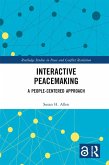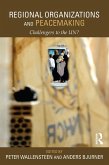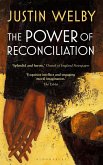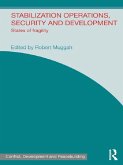In Peacemaking from Above, Peace from Below, Norrin M. Ripsman explains how regional rivals make peace and how outside actors can encourage regional peacemaking. Through a qualitative empirical analysis of all the regional rivalries that terminated in peace treaties in the twentieth century-including detailed case studies of the Franco-German, Egyptian-Israeli, and Israeli-Jordanian peace settlements-Ripsman concludes that efforts to encourage peacemaking that focus on changing the attitudes of the rival societies or democratizing the rival polities to enable societal input into security policy are unlikely to achieve peace.
Prior to a peace treaty, he finds, peacemaking is driven by states, often against intense societal opposition, for geostrategic reasons or to preserve domestic power. After a formal treaty has been concluded, the stability of peace depends on societal buy-in through mechanisms such as bilateral economic interdependence, democratization of former rivals, cooperative regional institutions, and transfers of population or territory. Society is largely irrelevant to the first stage but is critical to the second. He draws from this analysis a lesson for contemporary policy. Western governments and international organizations have invested heavily in efforts to promote Israeli-Palestinian and Indo-Pakistani peace by promoting democratic values, economic exchanges, and cultural contacts between the opponents. Such attempts to foster peace are likely to waste resources until such time as formal peace treaties are concluded between longtime adversaries.
Prior to a peace treaty, he finds, peacemaking is driven by states, often against intense societal opposition, for geostrategic reasons or to preserve domestic power. After a formal treaty has been concluded, the stability of peace depends on societal buy-in through mechanisms such as bilateral economic interdependence, democratization of former rivals, cooperative regional institutions, and transfers of population or territory. Society is largely irrelevant to the first stage but is critical to the second. He draws from this analysis a lesson for contemporary policy. Western governments and international organizations have invested heavily in efforts to promote Israeli-Palestinian and Indo-Pakistani peace by promoting democratic values, economic exchanges, and cultural contacts between the opponents. Such attempts to foster peace are likely to waste resources until such time as formal peace treaties are concluded between longtime adversaries.
Dieser Download kann aus rechtlichen Gründen nur mit Rechnungsadresse in A, D ausgeliefert werden.









